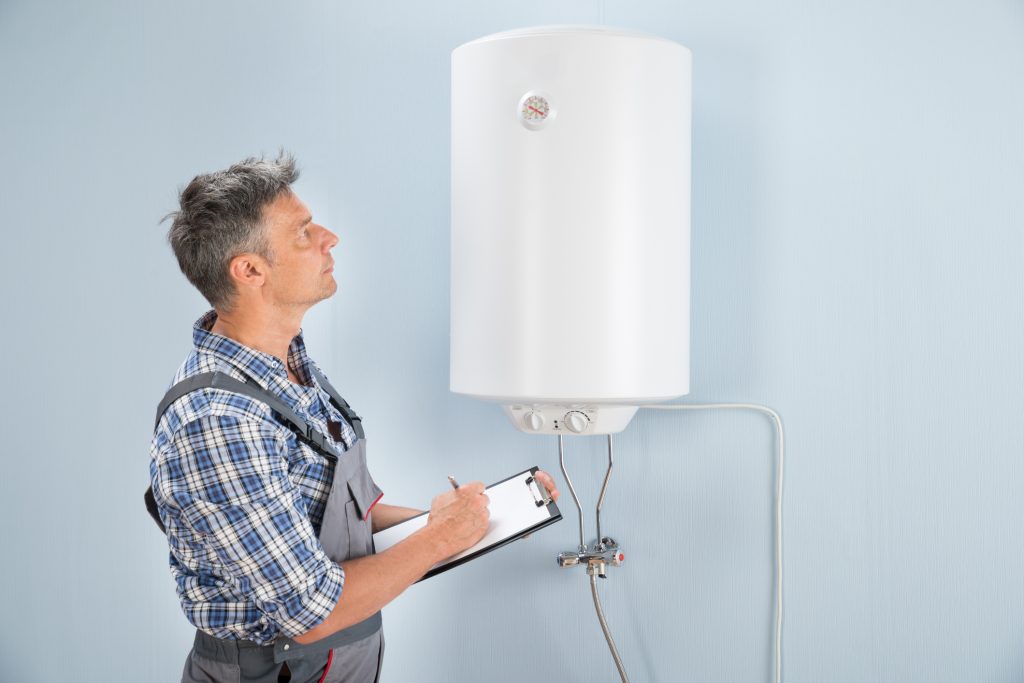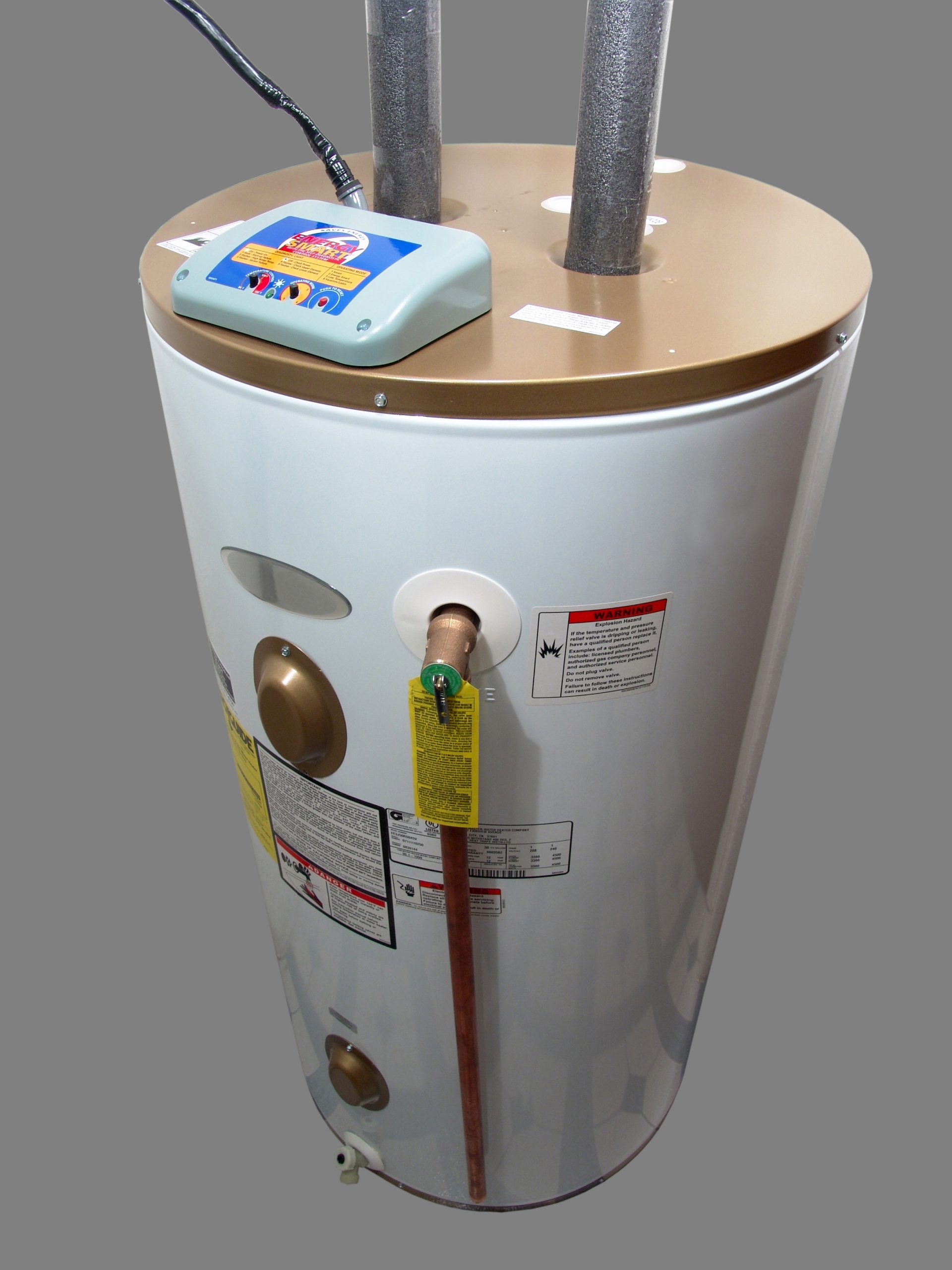Imagine stepping into a shower, expecting the soothing comfort of warm water, only to be greeted by scalding heat. It’s not just uncomfortable; it can be dangerous.
If you’ve ever asked yourself, “Why is my water heater overheating? ” You’re not alone, and it’s crucial to address the issue promptly. An overheating water heater isn’t just an inconvenience; it can lead to higher energy bills, potential damage to your home, and even safety hazards.
By understanding the reasons behind this problem, you can take effective steps to prevent it. This article will guide you through the common causes of overheating, helping you to identify the signs and offering practical solutions. Get ready to regain control over your water heater and enjoy safe, comfortable showers once again.
Common Causes Of Water Heater Overheating
Faulty thermostat settings often lead to water heater overheating. Sediment buildup can also cause temperature spikes. Faulty heating elements sometimes contribute to this issue as well.
Is your shower feeling more like a scalding sauna than a soothing stream? If your water heater is overheating, you’re not alone. Understanding the common causes can help you tackle this pesky problem effectively. Let’s dive into some of the main culprits behind an overheating water heater and how you can address them.Faulty Thermostat
A faulty thermostat can wreak havoc on your water heater. Imagine setting your shower to a comfortable temperature, only to be surprised by blistering hot water. If your thermostat is malfunctioning, it may not regulate the temperature correctly, leading to overheating. Check your thermostat settings regularly. If the problem persists, consider replacing it. Keeping an eye on your thermostat can prevent potential damage and keep your showers safe.Sediment Build-up
Sediment build-up is like a hidden enemy lurking at the bottom of your water heater tank. Over time, minerals and debris settle, creating a thick layer that can insulate the heating element. This forces your water heater to work harder, leading to overheating. Flushing your tank periodically can help remove sediment build-up. Don’t wait until it’s too late—preventative maintenance is key. A clean tank means efficient operation and consistent water temperatures.High Water Pressure
High water pressure might seem like a luxury, but it can be detrimental to your water heater. Excessive pressure puts a strain on the heater, causing it to overheat. You might notice this issue if your faucets or showerheads are spitting water with force. Consider installing a pressure-reducing valve to manage your home’s water pressure. It’s a small investment that can prevent big problems. Keep your pressure in check to extend the life of your water heater.Electrical Issues
Electrical issues are often the silent troublemakers in overheating water heaters. Faulty wiring or a defective heating element can cause your unit to overheat. You might not even realize there’s a problem until your water is too hot to handle. Regular inspections by a professional can help identify electrical problems early. Don’t attempt DIY fixes unless you’re confident in your skills. Ensuring proper electrical health is crucial for safe and efficient water heater operation. Is your water heater overheating due to one of these common issues? Identifying the problem early can save you from costly repairs and ensure your showers remain enjoyable. Remember, proactive maintenance is your best defense against an overheating water heater.
Credit: dallasplumbing.com
Signs Your Water Heater Is Overheating
Water heaters can sometimes overheat, causing various issues. Recognizing the signs early can prevent costly repairs. Understanding these signs helps in timely intervention. Here are some indicators your water heater might be overheating.
Unusual Noises
Is your water heater making strange sounds? This could signal overheating. Listen for popping or rumbling noises. These sounds often mean sediment buildup. The sediment traps heat, causing the water heater to overheat. Address this quickly to avoid damage.
Scalding Water
Is the water suddenly too hot? This is a common sign of overheating. Scalding water can be dangerous. It might cause burns when using taps or showers. Always check the thermostat settings. Ensure they are not set too high. Adjust them if necessary.
Water Leakage
Notice water pooling around the heater? Leakage might be due to overheating. Overheated water can create pressure. This pressure might lead to leaks in the tank. Inspect the tank for any visible cracks. Repair them to prevent further issues.
Assessing The Problem
Experiencing an overheated water heater can be concerning. Understanding the issue can help. It’s vital to assess the problem accurately. This involves checking several potential causes. Each step offers valuable insights.
Checking Thermostat Settings
The thermostat regulates water temperature. Incorrect settings can cause overheating. Ensure the thermostat is set correctly. Most recommend around 120 degrees Fahrenheit. Higher settings may cause issues.
Inspecting For Sediment Accumulation
Sediment can accumulate over time. It affects heater efficiency. Sediment buildup can cause overheating. Regular inspection helps maintain performance. Flushing the tank often prevents sediment issues.
Testing Water Pressure
High water pressure can lead to overheating. It stresses the heater system. Check the pressure relief valve. It should release excess pressure. If not, adjust the pressure settings. Proper pressure ensures safe operation.

Credit: americanhomewater.com
Diy Solutions For Overheating
Experiencing water heater overheating can be concerning. It often results from thermostat malfunctions or sediment buildup. Regular maintenance and thermostat checks help prevent these issues, ensuring optimal performance and safety.
Is your water heater overheating and causing you stress? You’re not alone. Many homeowners face this challenge, and the good news is there are DIY solutions you can try before calling in a professional. These steps are straightforward and can often resolve the problem effectively. Let’s dive into some practical solutions that you can implement today to keep your water heater running smoothly.Adjusting The Thermostat
One common cause of overheating is a thermostat set too high. Check the thermostat on your water heater. Lower the setting to around 120 degrees Fahrenheit. This temperature is usually sufficient for most household needs. Have you ever noticed the water being scalding hot? That’s often a sign that the thermostat needs tweaking. Adjusting it not only prevents overheating but also saves energy.Flushing The Tank
Sediment buildup in the tank can cause overheating. Over time, minerals from hard water settle at the bottom, leading to inefficient heating. Flushing the tank helps remove these sediments. To do this, turn off the power and water supply. Attach a hose to the drain valve and let the water flow out until it’s clear. Feel accomplished yet? This simple task can enhance your heater’s efficiency.Pressure Relief Valve Maintenance
The pressure relief valve is a safety feature that prevents pressure build-up. If it’s malfunctioning, it might be causing overheating. Test it by lifting the valve’s lever; you should hear a rush of air or see water. If nothing happens, it might be time to replace it. Maintaining this valve is crucial for your safety and the longevity of your heater. Have you ever replaced a valve before? It’s simpler than you think and can prevent future headaches. Addressing these issues can save you from cold showers and potential hazards. Each step is a simple fix that you can tackle over a weekend. Why not give it a try and see if your water heater runs more efficiently?When To Call A Professional
Experiencing an overheating water heater can signal serious issues. Strange noises or scalding water might mean internal problems. Call a professional to prevent damage and ensure safety.
When your water heater begins to overheat, it’s crucial to know when you should bring in a professional to handle the situation. While some minor issues can be fixed with a little DIY effort, there are certain signs that should prompt you to call an expert. Protecting your home and ensuring the longevity of your appliance is paramount. Let’s explore those situations where professional intervention is not just recommended, but necessary.Persistent Overheating
If you’ve tried adjusting the thermostat, yet your water remains scalding hot, it might be time to call in a professional. This persistent overheating could indicate a malfunctioning thermostat or a more complex issue with the heating element. Ignoring this can be dangerous and may lead to potential burns or damage to your plumbing.Complex Electrical Problems
Water heaters involve a delicate balance of water and electricity, which is a risky combination for those without proper expertise. If you suspect there’s an electrical fault, such as tripped breakers or faulty wiring, it’s best not to attempt a fix yourself. A certified electrician or plumber can safely diagnose and resolve these electrical issues, preventing potential hazards like electrical fires.Major Repairs Needed
Sometimes, the problem is bigger than it seems. If you notice leaks, strange noises, or the heater isn’t functioning at all, it might require major repairs or even replacement. Attempting significant repairs without the proper tools or knowledge can lead to further damage. Calling a professional ensures that your water heater is repaired correctly and efficiently, giving you peace of mind. Always remember that your safety and comfort are the top priorities. When was the last time you had a professional check your water heater? Don’t wait until a minor issue becomes a major catastrophe.
Credit: baylorinc.com
Preventive Measures
A malfunctioning thermostat often causes water heaters to overheat. Regular checks can prevent damage and ensure safety. Call a professional if you notice unusual noise or temperature spikes.
Preventing your water heater from overheating is crucial. It ensures safety and extends its lifespan. A few simple steps can make a difference. These preventive measures can keep your water heater in good condition. Let’s explore how you can maintain a safe and efficient heater.Regular Maintenance
Regular maintenance is vital for your water heater. Schedule a check-up at least once a year. This helps identify potential issues early. Clean the tank to remove sediment buildup. It improves efficiency and reduces overheating risks. Inspect the anode rod for corrosion. Replace it if needed to protect the tank from rust.Installing Pressure Regulators
Pressure regulators control the water pressure in your home. High pressure can cause overheating in your water heater. Install a pressure regulator to maintain a safe level. This prevents stress on the heater and prolongs its life. Check the regulator regularly to ensure it’s functioning properly. Adjust it if necessary to maintain optimal pressure.Monitoring Temperature Settings
Monitoring your water heater’s temperature is crucial. Set the thermostat to a safe level, typically 120°F. Higher settings increase the risk of overheating and scalding. Check the temperature regularly with a thermometer. Adjust the thermostat if you notice any fluctuations. This simple step can prevent many problems. Following these preventive measures ensures your water heater works safely. It also reduces the risk of costly repairs. Make these practices a part of your regular routine. Your water heater will thank you!Frequently Asked Questions
What Causes A Water Heater To Overheat?
Faulty thermostat can cause overheating. Sediment buildup may also raise temperature unexpectedly, leading to overheating.
How Can I Prevent Water Heater Overheating?
Regular maintenance helps. Check thermostat settings. Clean sediment buildup. Follow manufacturer’s instructions for safe operation.
Is Overheating A Common Problem In Water Heaters?
Yes, especially older models. Regular wear and tear can cause it. Routine checks help prevent this issue.
Can Overheating Damage The Water Heater?
Yes, continuous overheating may damage internal components. It might reduce heater’s lifespan and efficiency significantly.
Should I Call A Professional For Overheating Issues?
Yes, if unsure. A professional can diagnose and fix problems safely. Ensures proper functioning and safety.
Conclusion
A water heater overheating can be a real headache. It wastes energy and can damage the heater. Regular maintenance is key. Check the thermostat often. Look for signs of sediment buildup. A professional can help with complex issues. Fixing problems early saves money in the long run.
Safety is important. Protect your home and family. Pay attention to warning signs. Listen for unusual noises. Feel for hot spots. Act quickly when things seem off. Don’t ignore the problem. A little effort now prevents bigger troubles later. Keep your water heater in top shape.





